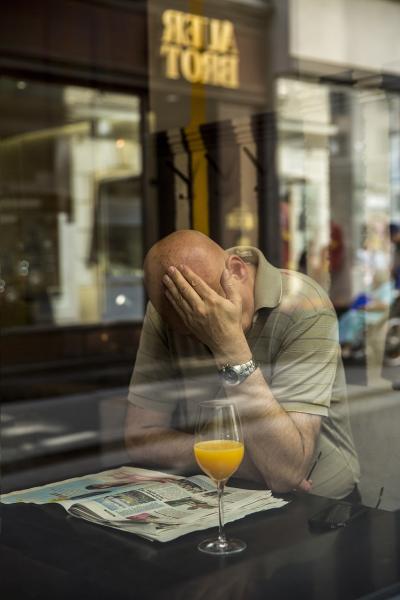We treat sports Gambling differently because the State is addicted to the revenue and ignores the cost.
“Since 2018, when the Supreme Court struck down the federal ban on sports betting, 38 states (including DC) have legalized the practice in some form. Twenty-six states allow sports gambling through sports apps, and five more have serious proposals circulating in their state legislatures. It’s a $280 billion marketplace that’s generating massive tax windfalls for the state legislatures that legalize it.”
Of course, there is more to the tale. From Matthew Yglesias’s Slow Boring, The sports gambling industry needs reform
My first interaction with “healthcare” was a vision screening in the 2nd grade. I failed miserably, accusing the nurse of making me stand further back than the rest of the kids. (An analyst might believe this did impact my later interactions with nurses). But getting glasses to correct my myopia resulted in moving from the 3rd to the 1st reading group – who knew that the page contained words?
“At first, the early morning ceremony went smoothly. A single cadet—tall, good posture—received a rifle on behalf of his classmates, symbolizing their duty to defend their country. As the ministers of education and defense rose to deliver their speeches to the young men they hoped would be the future of Taiwan, the sun also rose higher into the sky behind the stage. The government officials were dazzled by the glare reflecting back at them from hundreds of pairs of glasses. The ceremony was the seed for a joke about how to ward off an alien invasion—just ask Taiwanese students to look up—and the spark for the government’s fight against myopia.”
From Wired, The World Is Going Blind. Taiwan Offers a Warning, and a Cure
Riverhead, NY, near where I live, has a wonderful local concert venue, the Suffolk Theater. It’s relatively small, somewhere around 500 seats or more, often set up as a “dinner” theater with an open bar and reasonable food meant to complement, not exceed, the entertainment. Their small size makes it a very up-close experience, parking is free and easy, and the ticket cost to be close enough to see and far back enough not to be blown away by the sound is more than reasonable. Of course, many acts are cover bands, and often, original groups feature just one or two of the original members. But this is great entertainment on a Saturday night in a region more rural than suburban. So, I was particularly responsive when I saw this.
“Speaking of age, I noted that the crowd at the nearly sold-out show was almost entirely over 40, an observation confirmed by the theater’s management. The show was not an intergenerational moment with the kids and grandkids, where the creaky Boomers introduced the youngs to their prehistoric rock idols. (That’s what Rolling Stones concerts are for.) Perhaps it sounds odd to call a rock concert a safe space, but I felt more comfortable shouting lyrics such as “Spent my cash on every high I could find” in a crowd of people close to my own age than I might have while getting the stink eye from someone’s appalled teenager.”
From The Atlantic, a tribute to the originals and the tribute bands making the rounds, The Secret Joys of Geriatric Rock
The ACSH writing staff talks with one another every week, and the topic of Florida’s importation of drugs from Canada came up as a possible topic. Stat has covered both the basics of the plan and who will be seeing savings. They also indicate that the drug manufacturers will not be sitting idly by. As with many health moves by the State of Florida, this one is more smoke and mirrors than substance.
“Well, let’s put it this way. I don’t think it will help Florida consumers directly. The argument the state makes is that this will save taxpayer money, because if the program goes into effect, it will only extend to government programs — Medicaid, corrections, institutionalized populations in behavioral health facilities. And those people don’t really pay out-of-pocket for prescription drugs. Individuals who consume drugs are not going to be saving anything under this proposal. …
Meanwhile, there are other hurdles. Florida must send the FDA details on drugs it plans to import and ensure the drugs are potent and not counterfeit. The state has to provide a cost analysis on savings. And it also has to put FDA-approved labels on drugs instead of those used in Canada. How difficult will it be to comply?”
From Stat, Florida’s gambit to import drugs from Canada: ‘a complicated road’ ahea




